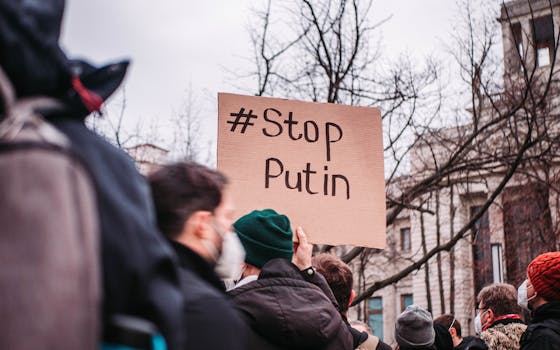Ukraine Summit Attracts World Leaders but Fails to Isolate Russia

The recent Ukraine Summit, held in Kyiv, drew significant attention from global leaders and international organizations. Despite the high-profile attendance and the strong show of support for Ukraine, the summit fell short of its goal to diplomatically isolate Russia. This article delves into the key events of the summit, the international response, and the implications for global geopolitics.
High-Profile Attendance
The Ukraine Summit saw participation from numerous world leaders, including representatives from the United States, the European Union, and NATO. Key figures such as U.S. Secretary of State Antony Blinken, European Commission President Ursula von der Leyen, and NATO Secretary-General Jens Stoltenberg were present, underscoring the international community’s support for Ukraine.
Key Objectives of the Summit
The summit aimed to achieve several critical objectives:
- Strengthening international support for Ukraine’s sovereignty and territorial integrity.
- Discussing economic and military aid packages to bolster Ukraine’s defense capabilities.
- Formulating strategies to diplomatically isolate Russia on the global stage.
International Response
The international response to the summit was overwhelmingly positive, with many countries reiterating their support for Ukraine. The European Union announced a new aid package worth €1.5 billion, aimed at supporting Ukraine’s economic stability and defense efforts. The United States pledged an additional $500 million in military aid, including advanced weaponry and training programs for Ukrainian forces.
Statements of Support
Several leaders made strong statements in support of Ukraine:
- Antony Blinken: “The United States stands firmly with Ukraine in its fight for sovereignty and democracy.”
- Ursula von der Leyen: “The European Union will continue to provide unwavering support to Ukraine in these challenging times.”
- Jens Stoltenberg: “NATO is committed to ensuring the security and stability of Ukraine.”
Challenges in Isolating Russia
Despite the strong show of support, the summit faced significant challenges in its efforts to isolate Russia. Several factors contributed to this difficulty:
Economic Dependencies
Many countries, particularly in Europe, remain economically dependent on Russian energy supplies. This dependency complicates efforts to impose comprehensive sanctions on Russia. For example, Germany relies on Russia for over 40% of its natural gas imports, making it challenging to take a hard stance against Moscow.
Geopolitical Alliances
Russia continues to maintain strong geopolitical alliances with countries such as China and India. These alliances provide Russia with economic and political support, undermining efforts to isolate it. China’s recent trade agreements with Russia, worth billions of dollars, highlight the strength of this partnership.
Internal Divisions
Within the international community, there are divisions on how to approach the situation with Russia. Some countries advocate for a more conciliatory approach, fearing that aggressive actions could escalate tensions and lead to broader conflicts. This lack of consensus weakens the overall strategy to isolate Russia.
Implications for Global Geopolitics
The outcome of the Ukraine Summit has significant implications for global geopolitics. The strong support for Ukraine sends a clear message to Russia and other authoritarian regimes that the international community will not tolerate violations of sovereignty. However, the inability to isolate Russia highlights the complexities of modern geopolitics, where economic dependencies and geopolitical alliances play crucial roles.
Future Strategies
Moving forward, the international community may need to adopt more nuanced strategies to address the situation. These could include:
- Reducing economic dependencies on Russia by diversifying energy sources.
- Strengthening alliances with countries that share democratic values.
- Engaging in diplomatic efforts to build a broader consensus on how to handle Russia.
Conclusion
The Ukraine Summit successfully demonstrated global support for Ukraine but fell short of isolating Russia. The challenges of economic dependencies, geopolitical alliances, and internal divisions within the international community highlight the complexities of modern diplomacy. Moving forward, more nuanced and strategic approaches will be necessary to address these challenges and ensure global stability.
In summary, while the summit was a significant step in rallying international support for Ukraine, it also underscored the need for a more comprehensive and coordinated effort to address the broader geopolitical landscape.




